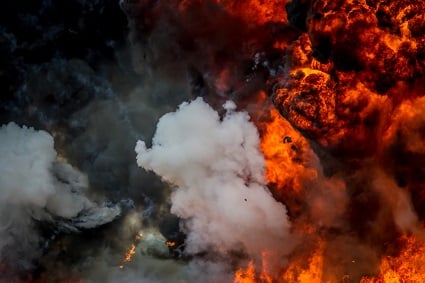Just days after the Quebec City Mosque shooting, being treated as a terrorist attack by police, the Canadian Catastrophe Conference held a panel on terrorism coverage where a critical question was addressed.
Does terrorism coverage actually indemnify victims for the majority of what they lose?
It’s an issue Mazdak Moini, VP of Commercial Lines and Reinsurance at Aviva raised as a moderator on the terrorism insurance panel at CatIQ’s three-day event.
The answer to Moini’s question came from
Aon’s business development director and is as much about the history of terrorism coverage as it is about the policy’s future.
“When we’re talking about a terrorism insurance program, we’re talking about a property damage and business interruption policy, full stop,”
Scott Bolton, director of business development and network relations at Aon Risk Solutions said.
“A terrorism insurance policy, it’s hard to say, but it doesn’t care about the deaths that might result from a terrorism attack.”
Attacks like the one in Quebec City, like the Nice Bastille Day massacre or the Orlando night club shooting all incurred significant loss of human life but relatively low levels of property damage or business interruption.
Terrorism coverage’s focus on property damage and business interruption is “almost to a shameful degree,” Bolton said, and Aon is now looking how attacks effect people and whether it’s something a model is capable of determining.
Want the latest insurance industry news first? Sign up for our completely free newsletter service now.
“When you start seeing deaths and injuries to people, from an insurance perspective you start hitting on the lifelines of business: medical, benefits, potential liability,” Bolton said.
“If they plan poorly, if they could have planned better, in order to limit the duration of the attack, or if their response was poorly managed and they made the issue worse by their actions, that raises liability issues.”
“The genesis of the (terrorism) insurance program comes from the 1990s IRA terrorism bombs in central London, the IRA would call in the bomb location and there would be an evacuation,” he added.
“Lots of property damage, lots of business interruption, very few casualties.”
Bolton acknowledged the outdated nature of the program “certainly in the last 24 months.”
“There’s a lot of appetite for terrorism and sabotage among underwriters, it’s been a while since there was a significant loss event for a property damage or business interruption perspective,” Bolton said.
Moini made the point that though new classes of businesses weren’t flocking to buy terrorism coverage, there was more demand.
“In the corporate space, you have clients who weren’t necessarily paying attention to terrorism coverage under a policy who have begun to pay attention to it and are asking for it,” Moini said.
Related stories:


